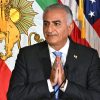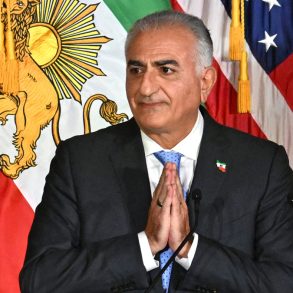The Task Force to Eradicate Anti-Christian Bias was created by President Donald Trump to “identify, terminate, and rectify” unlawful discrimination against Christians in the federal government. It is chaired by Attorney General Pam Bondi. The group held its first meeting in April 2025 and published an initial assessment on September 5, 2025, with a final report due by February 2026. The report promises that “the federal government will never again be permitted to turn its power against people of faith.
Members conducted preliminary reviews across major departments, looking for patterns in rules, enforcement, communications, hiring, discipline, social media, and funding. Their mandate was plain: “Any unlawful and improper conduct, policies, or practices that target Christians are identified, terminated, and rectified.” Investigators compared how agencies treated Christian requests and observances to how they treated secular or non-Christian ones, then documented repeat outcomes across offices.
The memo says the Biden administration showed a “consistent and systemic pattern of discrimination” and “weaponized the full weight of the federal government against Christians.” It adds, “The days of anti-Christian bias in the federal government are over. Faith is not a liability in America, it is a liberty.” White House spokeswoman Taylor Rogers put it this way: “Joe Biden weaponized the full weight of the federal government against Christians and trampled on their fundamental First Amendment rights. Unlike Joe Biden, President Trump is protecting Christians, not punishing them.”
Incidents the task force says prove the pattern
- Department of Defense, EEOC, and Labor religious exemptions
The task force says the Department of Defense, the Equal Employment Opportunity Commission, and the Department of Labor “deprioritized, mishandled, or denied requests for religious exemptions to the Biden administration’s COVID-19 mandate.” According to the report, Christians who raised sincere objections faced slow processes and unclear standards. Results looked the same across multiple agencies, which investigators treat as a coordinated posture rather than isolated missteps. The cumulative effect, the task force argues, was to corner Christian service members and employees into compliance or risk discipline, while agencies failed to show the neutral, individualized judgment that religious liberty requires. - Record fines against Christian universities
The Department of Education “attempted to impose record-breaking fines” on two of the nation’s largest Christian universities, including Liberty University at 14 million dollars and Grand Canyon University at 37.7 million dollars. The task force frames the size and publicity of these penalties as evidence of hostility to Christian higher education. It says the approach chilled other faith-based schools by signaling that Christian institutions would be policed more aggressively. In the report’s words, these actions showed “the damage that can be done when religious liberty is not protected and preserved for all Americans.” - DHS and a detainee directive that omitted Christians
Investigators found that within the Department of Homeland Security, Customs and Border Protection distributed a directive for detainees that “omitted Christian perspectives” while expressly noting accommodations for Islam, Rastafarianism, and sects of Judaism. The task force calls the omission revealing because specific non-Christian accommodations were listed side by side. It says the document treated Christian observances as an afterthought, which contradicts the equal footing the government owes to every faith. In a report centered on patterns, this was offered as a straightforward example of how Christianity could be singled out by silence. - DOJ’s posture and the use of the FACE Act
The report says the Justice Department failed to “address and prosecute violations of the law where anti-Christian bias was demonstrated by the persecutors.” Instead, it “pursued novel theories of prosecution against those speaking or demonstrating based upon their Christian faith.” About two dozen people were arrested or convicted under the Freedom of Access to Clinic Entrances Act for praying and demonstrating outside abortion facilities. The task force adds, “the same DOJ refused to apply the FACE Act to protect places of worship and crisis pregnancy centers.” To the task force, this looks like viewpoint-based enforcement that punishes public Christian witness while overlooking attacks against Christian sites. - FBI memo targeting Catholics
The task force cites the FBI memo that labeled “radical-traditionalist” Catholics as potential “domestic terrorism threats.” It argues that this cast devout practice as suspicious and damaged trust with churches. In a report that emphasizes tone as well as outcomes, investigators say this memo was a “high-visibility marker” that encouraged field offices to treat religious conviction as a risk factor. The document is offered as proof that bias can spread through internal guidance even before any arrest or prosecution occurs. - Treasury and the “debanking” of pro-Christian groups
The report points to “pro-Christian groups” that were debanked, placing the concern within Treasury’s broad influence over the financial system. While the task force does not purport to regulate banks, it faults the government for tolerating closures that function like a viewpoint test. If Christian advocacy groups can lose access to accounts without a clear, neutral rationale, the task force says, then the government’s silence becomes complicity. This is presented as another way in which Christians were pushed to the margins of civic life. - State Department relief, speech rules, and workplace treatment
The task force says the State Department gave “limited humanitarian relief to Christians relative to other populations” and offered “muted” responses to attacks on Christians. It also alleges “preferential employment practices” for non-Christian religions and notes that Christian employees were “less likely to be permitted leave” for their holy days. The report adds that State “imposed radical LGBTQ gender ideology on foreign governments and State employees, including the forced usage of preferred pronouns and rainbow flags,” which it says violated many Christians’ sincerely held beliefs. The through line is that Christian consciences were pressured while other identities received accommodation. - Labor’s faith engagement replaced by a DEI office
According to the task force, the Department of Labor dismantled its office of faith-based initiatives and replaced it with a diversity, equity, and inclusion office. Investigators argue that removing a faith-facing doorway made it harder for Christian nonprofits and employers to resolve conflicts early. The change is presented as structural proof that faith perspectives were downgraded. In the task force’s broader frame, institutions matter because they set the default. When the default no longer includes faith, bias becomes easier to normalize. - HUD treatment of Christian holiday posts
The report says the Department of Housing and Urban Development “discriminated against Christian perspectives” on its marketing and social channels, where posts celebrating Palm Sunday, Good Friday, and Easter were taken down while posts marking Pride Month, Ramadan, and Diwali “remained untouched.” The task force calls this a clean case of viewpoint discrimination in a public communication forum. It argues that removing Christian content while leaving other celebrations up told believers their holy days were out of bounds for official recognition, which is the opposite of equal respect. - DOJ’s broader indifference to anti-Christian bias complaints
Beyond specific prosecutions, the task force concludes that DOJ showed no “effort to address and prosecute violations of the law where anti-Christian bias was demonstrated by the persecutors.” Paired with the FACE Act choices, this created what investigators describe as a one-sided enforcement climate. The report says such signals discourage Christians from speaking, gathering, or serving in public because they cannot trust the referee. That chilling effect is part of what the task force means by a “systemic pattern.”
The report declares, “Under President Trump and Attorney General Bondi’s leadership, in partnership with all members of this Task Force, the rule of law will be enforced with vigor, and every religion will be treated with equality in both policy and action.” Rogers said, “Unlike Joe Biden, President Trump is protecting Christians, not punishing them.” The White House Faith Office, created in February 2025, is designed to help faith groups “better serve families and communities” and to align policy with “American values.”
Skeptics call the task force partisan and argue it overstates bias. They note that Biden voiced support for religious equality and that the Office of Religious Freedom continued to “support the right of every person in the world to ‘believe or not believe, to change their beliefs, speak about their beliefs, and to manifest their beliefs through teaching, practice, worship, and observance.’” They also point to the DOJ’s Reproductive Rights Task Force after state-level changes to abortion law. A former Biden official did not immediately comment in the reporting cited.
The report frames the lesson in simple terms. When government treats faith as a liability, rights erode quickly. When it treats faith as a liberty, equal justice becomes possible. In its own words, “The days of anti-Christian bias in the federal government are over. Faith is not a liability in America, it is a liberty.” The task force says its work is “just beginning,” and it plans a fuller account and recommendations by February 2026.
NP Editor: The bias was unbelievable, it was hard to believe that these actions were taken in America.








